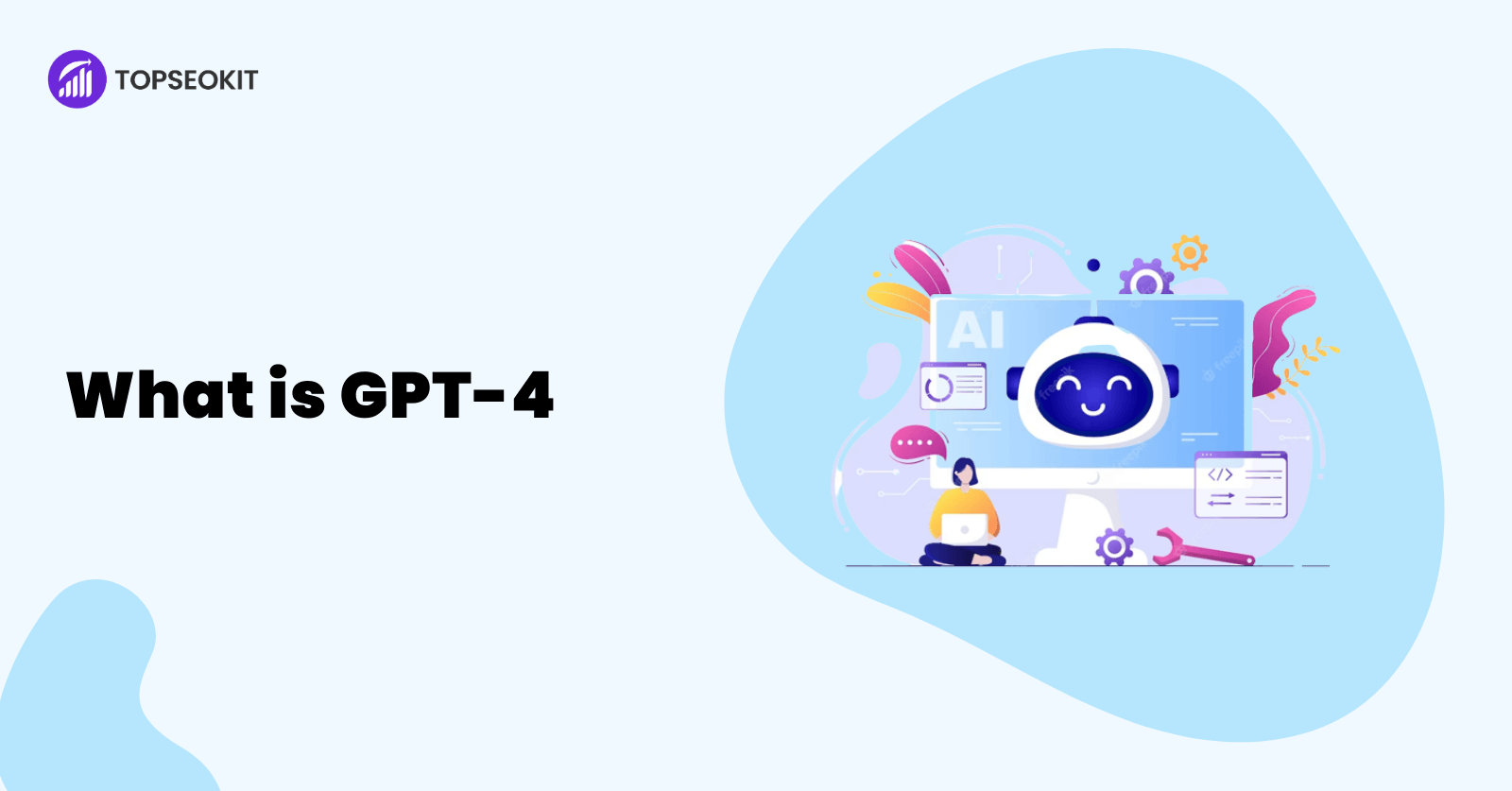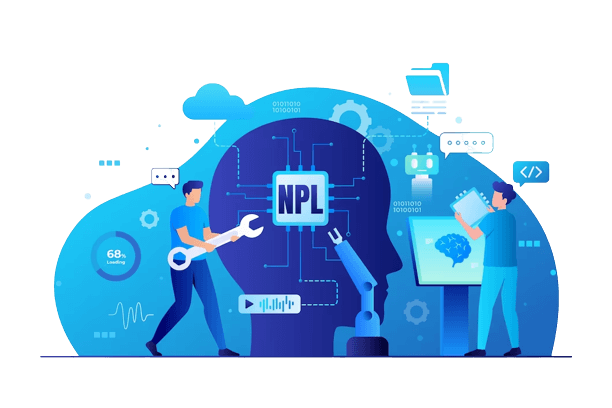
GPT-4 for SEO: Revolutionizing Search Optimization
In the rapidly evolving world of digital marketing, “GPT-4 for SEO” has emerged as a game-changing force, revolutionizing search optimization with its advanced multimodal AI capabilities.
Table of Content
- What is GPT-4
- Understanding GPT-4 and Multimodal AI
- GPT-4’s Impact on SEO
- Integrating GPT-4 into SEO Strategies
- Challenges and Limitations of GPT-4 in SEO
- Final thoughts
- FAQs
1. What is Chatgpt-4?
A. A Brief overview of GPT-4 and its capabilities
Imagine a world where you can generate high-quality content, optimize your website, and improve your search engine rankings with just a few clicks.
That’s the power of GPT-4 for SEO. GPT-4, or Generative Pre-trained Transformer 4, is an advanced AI model developed by OpenAI that has taken the world by storm with its incredible language understanding and generation capabilities.
B. Importance of SEO in the digital landscape
SEO (Search Engine Optimization) has become crucial to online success in the ever-evolving digital landscape.
With millions of websites vying for attention, standing out and ranking higher on search engine results pages (SERPs) to attract more traffic and potential customers is essential.
That’s where GPT-4 for SEO comes into play, helping you create engaging and optimized content that appeals to users and search engines.
C. The Role of AI in Modern SEO Strategies
Artificial Intelligence (AI) has revolutionized the way we approach SEO. Gone are the days of manual keyword research and tedious content creation.
AI-powered tools like GPT-4 have enabled automating and streamlining various SEO tasks, allowing you to focus on other aspects of your business while achieving top-notch results.
2. Understanding GPT-4 and Multimodal AI
A. Evolution of GPT models (GPT-1 to GPT-4)
The journey of GPT models began with GPT-1, which laid the foundation for natural language understanding.
With each iteration, the models became more sophisticated, culminating in the release of GPT-4, a state-of-the-art AI model that has surpassed its predecessors regarding language understanding, context awareness, and multimodal capabilities.
B. Critical features of GPT-4
- Improved language understanding
GPT-4 boasts an impressive ability to understand and generate human-like text. It means that it can create engaging and contextually relevant content, making it an invaluable tool for SEO.
- Multimodal capabilities
One of the standout features of GPT-4 is its multimodal capabilities. It can understand and generate content across different modalities, such as text, images, and audio, opening up a world of content creation and optimization possibilities.
- Enhanced context awareness
GPT-4’s enhanced context awareness allows it to generate content that is not only coherent but also contextually relevant. SEO must ensure your content meets your target audience’s needs and preferences.
C. Multimodal AI and its applications
The advent of multimodal AI has opened up many opportunities for businesses and individuals alike.
From content creation and optimization to customer support and data analysis, the applications of multimodal AI are vast and varied.
By harnessing the power of GPT-4 for SEO, you can stay ahead of the curve and ensure your online presence remains strong and competitive in the digital landscape.
3. GPT-4’s Impact on SEO

A. Content Generation and Optimization
As you explore the world of GPT-4 for SEO, you’ll quickly discover its potential for content generation and optimization.
With GPT-4, you can create high-quality, relevant content that engages your audience and keeps them returning for more.
This advanced AI technology allows for faster content creation, enabling you to keep up with the demands of the ever-changing digital landscape.
One of the key benefits of using GPT-4 for SEO is its ability to improve keyword targeting. By understanding the context and intent behind your chosen keywords, GPT-4 can help you craft informative and optimized content for search engines.
B. Semantic Search and Understanding User Intent
GPT-4’s capabilities extend beyond content creation, including semantic search and understanding user intent.
It means that GPT-4 can better understand search queries, allowing it to provide more accurate and relevant results. For example, if a user searches for “best running shoes,” GPT-4 can discern whether they want recommendations, reviews, or a comparison of different brands.
Enhanced content matching is another advantage of using GPT-4 for SEO. By analyzing the context and intent of search queries, GPT-4 can match users with the most appropriate content, improving search result relevance.
It leads to a better user experience and an increased likelihood of users engaging with your content.
C. Voice Search Optimization
As voice search becomes increasingly popular, it’s essential to adapt your SEO strategy accordingly.
GPT-4 for SEO can help you optimize your content for voice search by understanding and adapting to natural language queries.
Your content will be more accessible to users who prefer to search using voice assistants like Siri, Alexa, or Google Assistant.
Optimizing for voice search also involves considering the future of this technology as voice assistants become more advanced and integrated into our daily lives; staying ahead of the curve and ensuring your content is easily discoverable through voice search is crucial.
By leveraging GPT-4 for SEO, you can position your brand as a leader in this emerging space and capitalize on the growing popularity of voice search.
4. Integrating GPT-4 into SEO Strategies

As you venture into GPT-4 for SEO, it’s essential to understand how to integrate this powerful AI technology into your existing SEO strategies.
In this section, we’ll explore the tools and platforms that leverage GPT-4 for SEO, best practices for using GPT-4 effectively, and how to measure its impact on your SEO performance.
A. Tools and Platforms Leveraging GPT-4 for SEO
To harness the power of GPT-4 for SEO, you’ll need to familiarize yourself with the various tools and platforms that incorporate this advanced AI technology.
These tools can help you generate content, optimize your website, and analyze your SEO performance, all with the assistance of GPT-4’s language understanding capabilities.
Keep an eye out for new and emerging platforms that utilize GPT-4 for SEO, as they can provide you with a competitive edge in the ever-evolving digital landscape.
B. Best Practices for Using GPT-4 in SEO
When using GPT-4 for SEO, it’s crucial to follow best practices to ensure the most effective results.
First, strike a balance between AI-generated content and human input. While GPT-4 can create high-quality content quickly, reviewing and editing the output to ensure it aligns with your brand voice and meets your audience’s needs is essential.
Next, focus on ensuring content quality and uniqueness. GPT-4 can generate informative and engaging content, but it’s up to you to ensure it stands out from the competition. Regularly review your content to remain fresh, relevant, and unique.
Lastly, adhere to ethical guidelines when using GPT-4 for SEO. It includes respecting user privacy, avoiding deceptive practices, and ensuring your content provides genuine value to your audience.
C. Measuring the Impact of GPT-4 on SEO Performance
To gauge the effectiveness of GPT-4 for SEO, measuring its impact on your SEO performance is essential.
Track key metrics such as organic traffic, keyword rankings, and user engagement to determine how GPT-4 influences your SEO efforts.
By monitoring these metrics, you can make data-driven decisions to optimize your SEO strategy and maximize the benefits of using GPT-4.
5. Challenges and Limitations of GPT-4 in SEO
As you explore the potential of GPT-4 for SEO, you must be aware of the challenges and limitations of using this advanced AI technology.
This section discusses potential biases in AI-generated content, ethical concerns, and the need for continuous AI model updates.
A. Potential Biases in AI-Generated Content
While GPT-4 can create high-quality content quickly, it’s essential to be mindful of potential biases in the AI-generated output. Since GPT-4 learns from vast amounts of data, it may inadvertently adopt biases in the training data.
As a result, your content may unintentionally reflect these biases, harming your brand’s reputation and alienating your audience. To mitigate this risk, carefully review and edit the content generated by GPT-4 to ensure it aligns with your brand values and is free from any unintended biases.
B. Ethical Concerns and Content Manipulation
Using GPT-4 for SEO raises ethical concerns, particularly regarding content manipulation. GPT-4 can generate highly persuasive and engaging content with advanced language understanding capabilities.
However, it’s crucial to use this power responsibly and avoid creating deceptive or manipulative content. Always strive to provide genuine value to your audience and adhere to ethical guidelines when using GPT-4 for SEO.
C. The Need for Continuous AI Model Updates
Finally, it’s essential to recognize that GPT-4, like any AI technology, requires continuous updates to remain effective.
As the digital landscape evolves and new trends emerge, GPT-4 must be updated to stay current and maintain its ability to generate relevant, high-quality content. By visiting to be informed about the latest developments in AI and SEO, you can ensure that your use of GPT-4 remains effective and continues to provide a competitive advantage for your business.
6. Final thoughts
In conclusion, GPT-4 for SEO represents a transformative shift in approaching search engine optimization.
With its advanced language understanding capabilities, GPT-4 can generate high-quality, relevant content at lightning speed, improve keyword targeting, and enhance semantic search and understanding of user intent.
By integrating GPT-4 into your SEO strategies, you can gain a competitive edge and stay ahead of the curve in the ever-evolving digital landscape.
While there are challenges and limitations to using GPT-4 for SEO, such as potential biases in AI-generated content and ethical concerns, these can be mitigated with careful review and adherence to ethical guidelines.
As AI technology advances, the future of SEO looks bright, with endless possibilities for improving search engine results and user experience.
7. FAQs
Can you use chat GPT for SEO?
Yes, you can use chat GPT for SEO. It can help generate high-quality, relevant content and optimize keyword usage, improving your website’s search engine ranking and visibility.
Can GPT-4 Analyse Websites?
GPT-4 cannot directly analyze websites, as it is a language model focused on generating and understanding the text. However, it can provide insights and suggestions based on textual input, which can be useful for website analysis when combined with other tools and data.
What are the 4 types of SEO?
The 4 types of SEO:
- Technical SEO
- Off-page SEO
- Local SEO
- Page SEO
Which is an SEO search engine optimization method?
Keyword optimization is an SEO (search engine optimization) method. It involves researching, selecting, and strategically placing relevant keywords within your website’s content to improve its visibility and ranking on search engine results pages.
Let’s dive in! Get started for free
